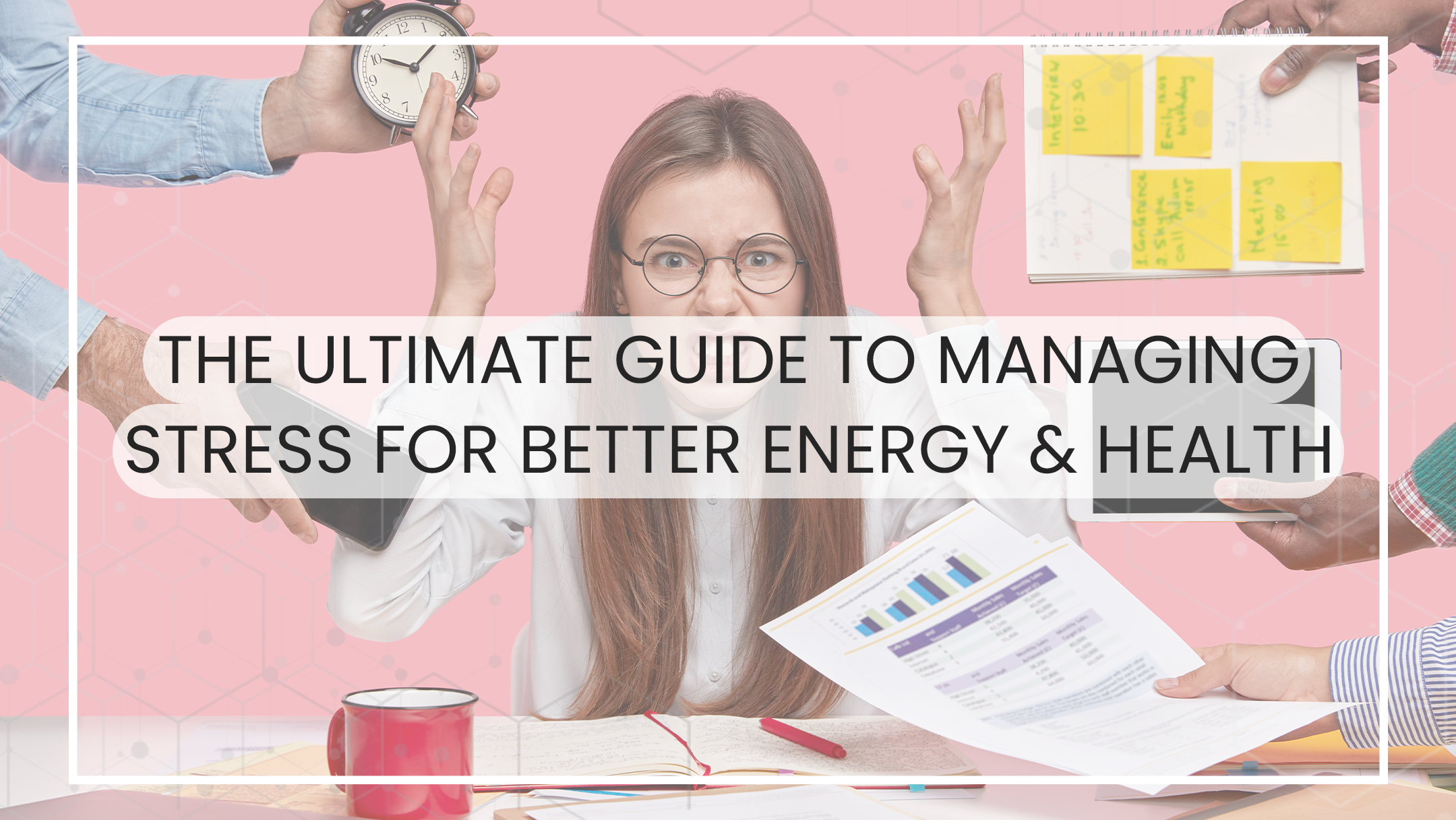
The Ultimate Guide to Managing Stress for Better Energy and Health
Stress has become a pervasive aspect of modern living. From the pressures of work deadlines to the pressures of daily lives – our lives are often characterized by a constant undercurrent of stress. While some stress can be motivating and beneficial, chronic stress can have profound effects on both our physical and mental health. Keeping a good balance is important, and understanding the mechanisms of stress and its impact on the body is essential for effectively managing stress and improving overall well-being.
The Physiology of Stress: How the Body Responds
When faced with a stressor, whether it’s a looming deadline or a challenging situation, the body initiates a complex physiological response known as the stress response. This response is orchestrated by the hypothalamic-pituitary-adrenal (HPA) axis, a key system involved in regulating stress hormones.
- Perception of Stress: The stress response begins in the brain, specifically in the amygdala and hypothalamus, which interpret incoming signals as stressful.
- Release of Stress Hormones: In response to perceived stress, the hypothalamus signals the adrenal glands to release stress hormones, including cortisol and adrenaline, into the bloodstream.
- Activation of the Fight or Flight Response: These stress hormones trigger a cascade of physiological changes designed to prepare the body to either fight the stressor or flee from it. Heart rate increases, blood pressure rises, and glucose is released into the bloodstream to provide immediate energy.
While the stress response is crucial for survival in threatening situations, chronic activation of this system can have detrimental effects on health. Prolonged exposure to elevated levels of cortisol, in particular, can lead to a range of health issues, including:
- Impaired Immune Function: Cortisol suppresses the immune system, making individuals more susceptible to infections and illnesses.
- Metabolic Imbalances: Chronic stress can disrupt the metabolism, leading to weight gain, insulin resistance, and increased risk of metabolic disorders like diabetes.
- Cardiovascular Problems: Elevated cortisol levels contribute to hypertension, atherosclerosis, and other cardiovascular issues.
- Mental Health Disorders: Chronic stress is closely linked to anxiety, depression, and other mood disorders.
Stress and the Mind-Body Connection
It’s important to recognize that stress is not solely a physical phenomenon; it also has profound effects on mental and emotional well-being. Stress can influence cognitive function, memory, and mood, leading to feelings of anxiety, irritability, and difficulty concentrating. Moreover, chronic stress can perpetuate a cycle of negative thinking and behaviors, further exacerbating stress levels.
The mind-body connection plays a significant role in how stress manifests and affects overall health. Psychological stressors, such as work pressure, financial worries, or relationship conflicts, can trigger physiological responses in the body. Conversely, physical practices that promote relaxation and stress reduction, such as meditation, deep breathing, and yoga, can positively impact mental and emotional well-being.
The Western Lifestyle and Chronic Stress
In many Western societies, the prevalence of chronic stress is alarmingly high, driven by factors such as:
- Work Demands: Long hours, tight deadlines, and job insecurity contribute to workplace stress.
- Technology Overload: Constant connectivity through smartphones and computers blurs the boundaries between work and personal life, leading to digital overwhelm.
- Sedentary Habits: Physical inactivity and prolonged sitting contribute to physiological stress and exacerbate mental health issues.
- Poor Dietary Choices: High consumption of processed foods, sugar, and caffeine can disrupt hormonal balance and increase susceptibility to stress-related health problems.
Addressing the root causes of chronic stress requires a multifaceted approach that encompasses lifestyle changes, coping strategies, and holistic interventions.
Practical Strategies for Managing Stress
In addition to understanding the physiological and psychological aspects of stress, adopting practical strategies to manage stress is essential for promoting better energy and health. These strategies include:
- Mindfulness and Meditation: Cultivating mindfulness can help individuals become more aware of their thoughts and emotions, allowing them to respond to stressors more effectively.
- Physical Activity: Regular exercise is a potent stress reliever, promoting the release of endorphins and reducing tension in the body.
- Healthy Eating Habits: Nutrient-rich foods support overall well-being and resilience to stress, while minimizing the consumption of processed foods and stimulants.
- Quality Sleep: Prioritizing restorative sleep is crucial for regulating stress hormones and promoting emotional balance.
- Social Support: Building strong social connections and seeking support from friends, family, or support groups can buffer the effects of stress and foster resilience.
Introducing Apexx01: Enhancing Stress Management and Energy Levels Naturally
Incorporating a natural supplement like Apexx01 into your daily routine can provide additional support for combating stress and enhancing energy levels. Apexx01’s unique formulation of 52 natural ingredients, including adaptogenic herbs, vitamins, minerals, proteins, superfoods, amino acids, and fatty acids, targets the root causes of stress and fatigue, promoting holistic well-being.
By leveraging the power of nature and science, Apexx01 offers a comprehensive solution for managing stress and optimizing energy levels. Whether you’re navigating the challenges of daily life or seeking to enhance your overall vitality, Apexx01 is your ally in the journey towards better energy and health.

